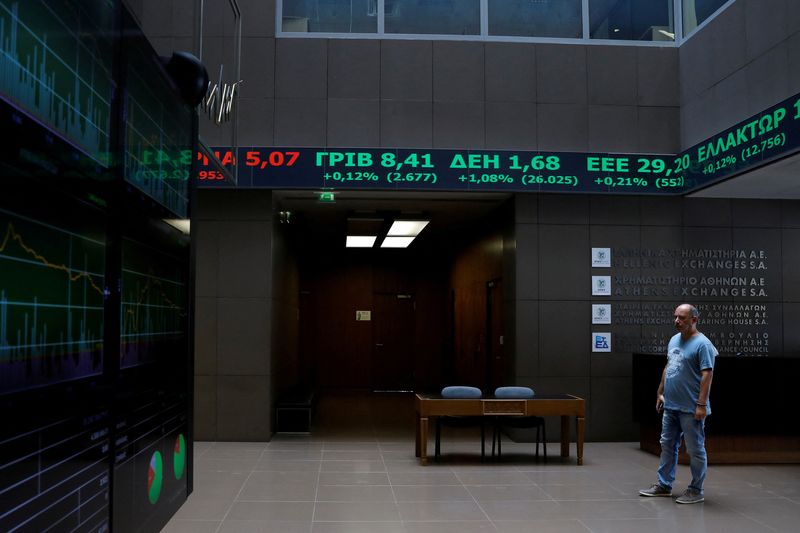Greek stocks find love as turnaround efforts pay off
2024.12.17 06:36
By Johann M Cherian
(Reuters) – Greek stocks are fast becoming a popular option for investors, with some expecting an upgrade to coveted developed-market status next year, as the economy outpaces its euro zone peers and bank stocks roar ahead.
The Athens General Stocks Index has risen 13.1% so far in 2024, building on a near 40% jump last year, and outperforming the Europe-wide ‘s 7.7% gain this year.
Asset manager Amundi’s Greek equities fund attracted net inflows of $2.9 million in November, its biggest in a year, according to data compiled by Morningstar.
“The economy is growing rapidly relative to the euro zone average and it does move the needle from an earnings growth potential point of view for these Greek companies,” said Wim-Hein Pals, head of emerging markets equity at Robeco, which manages more than 10 billion euros ($10.5 billion) in emerging market funds.
Greece has made a steady recovery from a debt crisis that started in 2009 and almost saw it crash out of the euro before an international bailout. Its borrowing costs have dipped below those of Italy and France, and its banks – which had to be bailed out during the crisis – are fully privatised again.
Analysts see further momentum in Greek stocks as they still trade at a discount to the STOXX 600 and pay higher dividend yields compared to the broader European market – factors that could attract more investors.
The European Commission expects the economy to grow by 2.3% in 2025, ahead of 1.3% for the euro zone.
Financial stocks, which make up about 30% of the main Greek index, have gained over 20% this year on strong demand from foreign and domestic investors, as the government completed the privatisation of banks.
The four biggest banks have resumed dividend payments for the first time in 16 years.
The overall economic picture also looks brighter. The government has been repaying its bailout loans and debt is expected to drop to 146.8% of gross domestic product next year, according to the European Commission, from a pandemic peak of over 200%. Analysts at Bank of America expect the ratio to fall below that of Italy by 2028 – currently above 134%.
While Europe braces for potential trade tariffs after U.S. President-elect Donald Trump re-enters the White House on Jan. 20, the U.S. has a trade surplus with Greece this year, which could limit any impact.
“Greek companies are most probably better off in relative terms, regarding a potential trade war,” said Nassos Koumettis, senior trader at Athens based Hellenic Asset Management.
“The greatest part of Greece’s exports to the U.S. consists of services that would probably be more immune to U.S. tariffs,” added Koumettis, whose firm manages about half a billion euros, and increased its holdings of Greek stocks by 5 percentage points recently.
Following the U.S. election, Robeco also increased its active overweight position by 0.5 percentage points to 3%, particularly in the financial sector.
Greece’s improving economic performance has also brought its equities closer to reclaiming developed market status, with Russell putting it on an upgrade watchlist in October.
“To a large extent, it checks a lot of the boxes. It’s a matter of having a track record now on this positive path, particularly on the fiscal side,” said Athanasios Vamvakidis, Global Head G10 FX Strategy, BofA Global Research.
Most fund managers follow MSCI’s classification and the global index provider still considers Greece an emerging market since its downgrade in 2013.

MSCI said some of the reforms taken to make the market more accessible were still being tested by institutional investors, including stock lending and short-selling practices.
($1 = 0.9523 euros)








